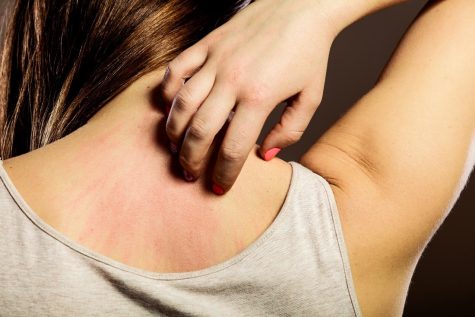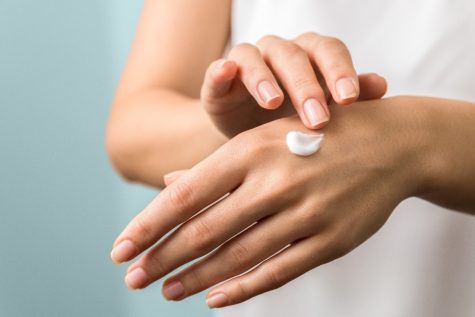7 Proven Remedies For Itchy Skin
July 6, 2022
Itchy skin, medically known as pruritus, can be caused by several factors—including pregnancy, medications, dry skin, and other underlying health conditions. Additionally, chronic itching can occur in some individuals who’ve been suffering from the said condition for more than six weeks.
Itchiness can impact a patient’s well-being depending on the source and intensity. Sometimes, it can be so debilitating that it disrupts a patient’s daily routine. At night, it can deprive individuals of much-needed sleep and lead to skin inflammation, infection, and scarring. Experts discourage itchy skin patients from scratching to prevent these adverse outcomes.
There are several ways to relieve itchy skin, including topical solutions such as Dermeleve and oral medications. Experts suggest that the treatment should start with determining and addressing its source. Discover some effective methods you can use at home or as medical practitioners prescribe.

Who are vulnerable
Individuals may suffer from pruritus at any stage in their lifetime. However, specific people are more at-risk such as older adults, persons suffering from allergies, pregnant women, and those with serious illnesses such as cancer, diabetes, and human immunodeficiency virus or HIV.
Skin conditions such as atopic dermatitis or eczema, psoriasis, shingles, and fungal infections can also lead to pruritus.
Ways to relieve itchy skin
The American Academy of Dermatology Association (AAD) and other specialists recommend the following methods to ease pruritus:
1. Applying cold therapy
Placing a cold, wet cloth or ice pack on the affected skin can help subside itchiness, especially those caused by eczema, psoriasis, and contact urticarial. Studies have shown that the cooling sensation can slow down nerves that send the itch-inducing stimuli to the brain. Apply the cold pack or cloth on your skin for up to 10 minutes or wait until the urge to scratch dissipates.
2. Mixing colloidal oatmeal in your bathwater
Colloidal oatmeal refers to the powdered variety of the said grain. It’s highly soluble in water and can relieve itchiness accompanied by hives, sunburn, chickenpox, and poison ivy. Besides working to ease skin irritation, this wonder crop enhances the skin barrier by moisturizing the skin, according to a study. Sunscreen lotions and creams work similarly, reducing the chances of sunburn and skin irritation by forming a layer of protection on your body’s largest organ.
3. Moisturizing your skin
Dry skin is the most common reason for itching. When the skin loses its protective barrier, it can be prone to rough patches and irritation, leading to skin itching. The AAD reminds individuals with this condition to pick a moisturizer devoid of potentially harmful chemical additives. Moisturizers should be applied after a shower when the skin is still wet. Additionally, you may place your topical moisturizer inside the refrigerator for added cooling effect. Using topical products packed with skin vitamins can also help.
Warm and dry air can also contribute to dehydrated skin. In the winter, use a humidifier in your home and keep cool during summer to prevent your skin from becoming dry and itchy.
4. Using topical anesthetics
If suffering from skin itching accompanied by pain, applying topical anesthetics may be better. Anesthetics work by numbing the pain and treating swollen or inflamed skin. This treatment is recommended for persons suffering from eczema, minor burns and cuts, cold sores, rashes, and poison ivy. Topical anesthetics containing pramoxine can also relieve swelling in a person’s sensitive areas, including the genitals.
5. Putting mentholated creams or calamine lotion
Cooling therapy can also be used by spreading topical synthetic cooling compounds such as menthol, which works similarly to natural cooling therapy from cold packs. The AAD advises refraining from scratching the affected site to avoid getting worse and increasing the vulnerability to infections and irritations.

6. Addressing underlying causes
In some cases, itching may be caused by skin allergies or an adverse reaction to certain oral medications. Your health care provider will likely suggest switching to another treatment to relieve itching. In addition, kidney, gallbladder, and liver conditions can make patients more vulnerable to pruritus. Hence, medical intervention is recommended in these situations. Moreover, a doctor may request diagnostic tests, including blood tests, to validate this suspicion.
7. Antihistamines
Antihistamines come in various forms, such as lotions, creams, eye drops, capsules, syrups, and gels. These medications are often prescribed for patients suffering from allergies, hives, conjunctivitis, and insect bites. These compounds work by inhibiting the body’s production of histamine, or chemicals naturally produced by the body’s immune system after detecting allergens.
A recent study has confirmed that antihistamines effectively calm itchy skin and eliminate sleep deprivation in patients with eczema or atopic dermatitis.
Conclusion
Itchy skin can signal something wrong with your body, as in cases of allergic reactions and certain diseases. Regardless of the cause, itchiness can only be treated by addressing its source. The remedies listed in this article are not necessarily meant to address the underlying issue but merely to ease the discomfort and irritation caused by the urge to scratch.
Similarly, you can proactively reduce your vulnerability to pruritus using some of the natural remedies discussed in this article, including moisturization and sticking to all-natural products.





